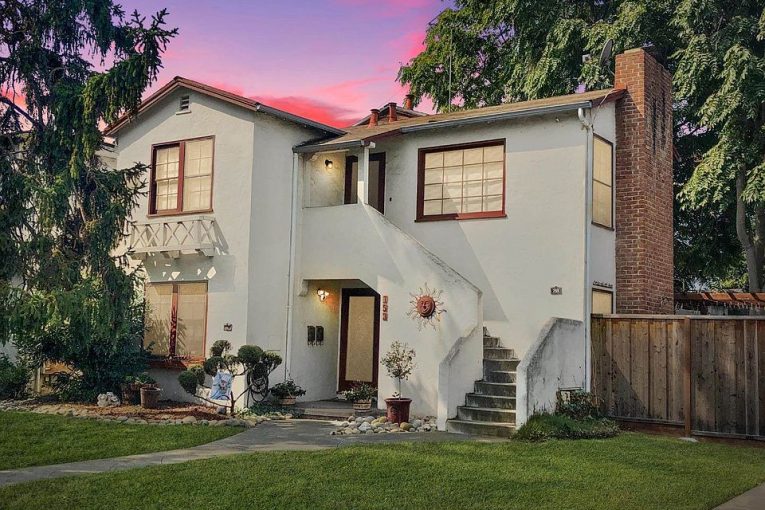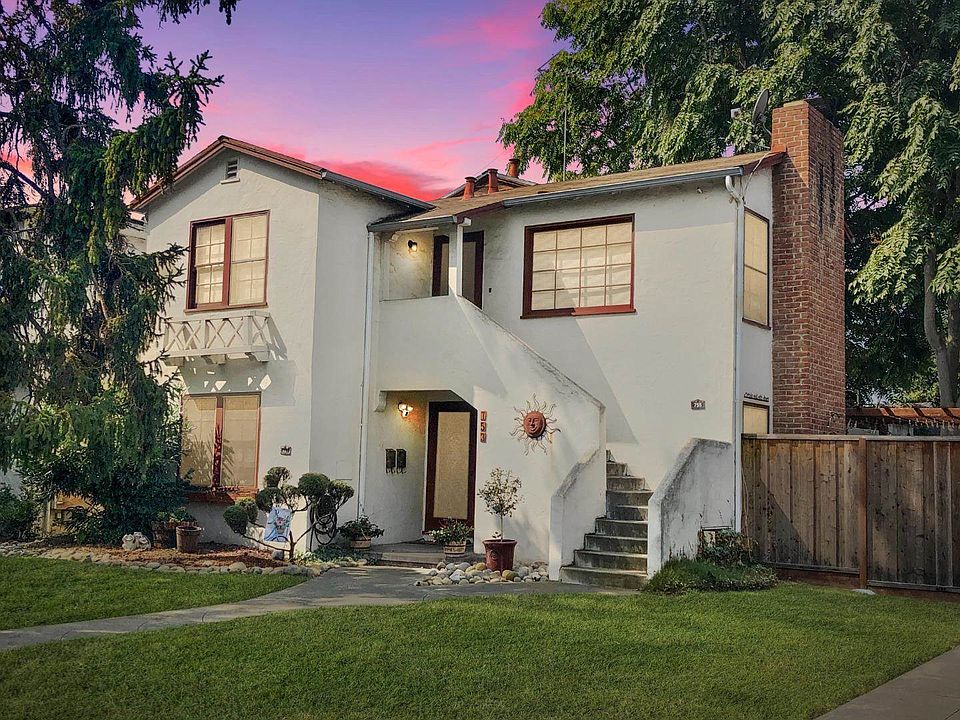

By David M. Greenwald
Executive Editor
Sacramento, CA – The recall now behind him, Governor Gavin Newsom on Thursday wasted little time attempting to address perhaps his signature issue, addressing the housing crisis. Most notably and controversially he signed SB 9 – which eliminates single family zoning restrictions on duplex and four-plexes, but also SB 8 and SB 10.
In a statement from the Governor’s office they believe the legislation will “expand housing production in California, streamline housing permitting, and increase density to create more inclusive and vibrant neighborhoods across the state.”
They also hope that bills will “address the interrelated problems of climate change and housing affordability by promoting denser housing closer to major employment hubs – a critical element in limiting California’s greenhouse gas emissions.”
“The housing affordability crisis is undermining the California Dream for families across the state, and threatens our long-term growth and  prosperity,” said Governor Newsom.
prosperity,” said Governor Newsom.
He added, “Making a meaningful impact on this crisis will take bold investments, strong collaboration across sectors and political courage from our leaders and communities to do the right thing and build housing for all. I thank Pro Tem Atkins and all the Legislature’s leaders on housing for their vision and partnership to keep California moving forward on this fundamental issue.”
SB 9 facilitates the process for homeowners to build a duplex or split their current residential lot, expanding housing options for people of all incomes that will create more opportunities for homeowners to add units on their existing properties. It includes provisions to prevent the displacement of existing renters and protect historic districts, fire-prone areas and environmental quality.
However, while many housing advocates have welcomed SB 9 as a way to increase density, the League of California cities had called on Governor Newsom “to veto this flawed legislation.”
“SB 9 empowers developers, usurps local democracy, silences community voices, and fails to guarantee affordable housing,” League of Cities Director Carolyn Coleman said in August. “The ‘by right’ approval scheme created by SB 9 circumvents the important local government review process that includes extensive public engagement. And because there are no provisions in SB 9 that require new housing to be affordable, the new units will remain out of reach for many working-class families. “
However, the signature marks a big win for Senator Toni Atkins.
“I appreciate Governor Newsom’s continued commitment to solving one of the most vexing issues facing our state – increasing the amount of housing and widening access for more Californians,” said Senator Atkins.
She added, “SB 9 will open up opportunities for homeowners to help ease our state’s housing shortage, while still protecting tenants from displacement. And it will help our communities welcome new families to the neighborhood and enable more folks to set foot on the path to buying their first home. I’m grateful for the Governor’s partnership, and our shared determination to turn the corner on California’s housing crisis.”
Atkins issued a statement on her own as well, “For too many Californians, the idea of owning a home, renting a house big enough for their family, or even just being able to live in the community where they work is a far-off dream. This law will help close the gap and make those dreams a reality. The years-long housing crisis has had a deep impact on our state, and has contributed to overcrowding, long commutes, and undue disadvantage for lower-income families.”
SB 10 by Senator Scott Wiener meanwhile creates a streamlined zoning process for new multi-unit housing near transit or in urban infill areas, whith up to 10 units per parcel.
The legislation simplifies the CEQA requirements for upzoning, giving local leaders another tool to voluntarily increase density and provide affordable rental opportunities to more Californians.
“California’s severe housing shortage is badly damaging our state, and we need many approaches to tackle it,” said Senator Wiener. “SB 10 provides one important approach: making it dramatically easier and faster for cities to zone for more housing. It shouldn’t take five or 10 years for cities to re-zone, and SB 10 gives cities a powerful new tool to get the job done quickly. I want to thank the Governor for signing this essential bill and for continuing to lead on housing.”
Also signed was SB 8 authored by Senator Nancy Skinner, extending the provisions of the Housing Crisis Act of 2019 through 2030.
Supporters say the measure “accelerates the approval process for housing projects, curtails local governments’ ability to downzone and limits fee increases on housing applications, among other key accountability provisions.”
“California needs more housing, and we need it now,” said Senator Skinner. “Thank you, Governor Newsom, for signing these bills that will enable homeowners and our communities to add much-needed and affordable housing efficiently and without delay. Housing close to jobs, schools and services helps our housing shortage, and is essential to meeting California’s greenhouse gas reduction goals.”
“Since taking office, the Governor has signed major legislation to boost housing production and remove barriers to construction of accessory dwelling units, and signed 16 CEQA reform bills to streamline state laws to maximize housing production,” a release noted.
“The 2019-20 State Budget made a historic $1.75 billion investment in new housing and created major incentives for cities to approve new home construction. In the first weeks of his administration, Governor Newsom signed an executive order that created an inventory of all excess state land and the Administration has launched partnerships with California cities to develop affordable housing on that land.”







Wow! Newsom has done a lot to get more housing. I hope it makes a difference. Congratulations to Wiener, Skinner, Atkins and the Governor.
Ha, he waited until after the election.
No surprise there, no guts.
A true statesman that Newsom
Never mind that the session ended on Saturday. He signed it four days after.
Had he signed in advance, you would have complained that he should have waited to see if he got recalled and argued he should allow the new governor to decide. He was never going to win by you anyway.
Also, it’s not like he can hide. He’s up for reelection in a year
He could have made his position known prior to the election.
But, he pretty much did anyway.
I’m sure that this bunch of (predominantly white) people are happy. Largely supported by the technology industry – even more than the development industry.
https://cayimby.org/
In any case, now we know what to say when someone proposes some sprawling development. “Go up (rather than “west”), young man – there’s nothing we can do to stop you, anyway”.
And go ahead and make that “pencil out” regarding Affordable (or affordable) housing. What a joke.
It will make some single-family housing owners more wealthy, however – when they “cash out” to a developer. They only have to live in one of the new units for 3 years, I understand.
““Go up (rather than “west”), young man – there’s nothing we can do to stop you, anyway”.”
That’s not actually true. I assume you are talking about SB 10.
“Authorizes a city or county to pass an ordinance, notwithstanding any local
restrictions on zoning ordinances that limit the legislative body’s ability to
adopt zoning ordinances, to zone any parcel for up to 10 units of residential
density, at a height specified by the ordinance, if the parcel is located in a
transit-rich area or an urban infill site”
“If the ordinance supersedes any zoning restriction established by a local
initiative, the ordinance shall only take effect if adopted by a 2/3 vote of
the members of the legislative body.”
In regard to Davis, I can envision any single-family housing that’s near downtown (or UCD) falling to this. Especially in the “opportunity zone” (e.g., old East Davis – and whatever else that zone covers).
How was that zone implemented, anyway? Whose “idea” was it? And, who “facilitated” it?
And, how does SB 10, for example – impact the Trackside proposal?
I’m referring to both/all. What if height limits conflict with SB 9, for example?
Though SB 9 might deal more with lot coverage (e.g., no yards anymore).
SB 9 only allows for split lots and duplexes. You still have to adhere to current zoning on size/ mass.
“And, how does SB 10, for example – impact the Trackside proposal?”
It doesn’t. SB 10 is a maximum of 10 units.
https://www.livablecalifornia.org/california-state-legislation-bills-2021-livable-california/
Don’t blame me – I voted for the recall. Thought that guy could have signed it on his way out.
But hey – he’ll force everyone to wear masks. Yay!
The first one is an opinion piece, written before the final form. Analysis is that SB 9 will have a marginal impact on existing neighborhoods. The notion that this is the end of single family zoning is unsupported hyperbole.
The second one is not accurate. I quote directly from the language approved by the legislature above. Ten is the max, not 14.
Terrific – 10 unit dwellings, anywhere within the radius allowed. From the same type of council members that approved Trackside.
Yeah – the first one is “Wiener’s opinion” (and apparently Newsom’s), regarding single-family housing and yards. (Except for the several-acre complex with a single-family house that Newsom lives in, of course.)
Yay!
But again, you know what those opposed to sprawl are going to be pointing to, right? Be careful what you wish for.
Opportunity zone – how did that occur?
Suddenly, the “housing element” doesn’t seem to “need” sprawl. 🙂
Of course, it never did in the first place.
If it did, San Francisco would have to fill-in the bay. (Which was actually the “plan”, many decades ago – but unrelated to the current nonsense. In those days, they didn’t even try to hide greed.)
Seriously, they were going to fill-in a substantial portion of the bay, at one time. In addition to what they’ve already done.
Of course San Francisco managed to grow at 10 percent from 2010 to 2018 whereas Davis grew at less than two percent.
I recall that this percentage regarding Davis was challenged in another article. Regardless, your own example proves that sprawl is not needed to accommodate the growth monkeys.
How much did San Francisco “shrink” recently?
Again, all of this is a “choice” – starting with “who” the voters select (from among the choices presented). The latter part of that phrase being the problem.
Ron
Your opinion about Davis is irrelevant since you are not a resident and have no stake here. Stick to commenting on what impact this might have in Woodland where you live.
Richard:
I have said nothing about where I live. You have posted information which violates Vanguard policy, and which was encouraged by them.
There are many ways in which someone can have a connection to Davis.
What does your comment have to do with the substance of my comment?
And are you concerned that a member of the Housing Element Committee did not live in Davis?
“Ha, he waited until after the election.
No surprise there, no guts.
A true statesman that Newsom”
Damned if you do damned if you don’t.
I guess you feel the same about Trump not getting out of Afghanistan before the election.
This has nothing to do with Trump.
If I had made this type of comment about Biden my comment would have been removed as off topic.
You are right this has nothing to do with Trump just as Newsom has nothing to do with Afghanistan.
The similarity is both politicians not wanting to spend political capital before an election.
Once more California homeowners get wind of this incredibly destructive legislation they will fight back hard. Newsom and Scott Wiener are nothing less than servile dependents of greedy developers who could care less about the environmental impacts of endless building and unsustainable population growth.
Meh, this homeowner is fine with it – but then, I started getting cranky about the anti-growth mindset here when I was a student 20+ years ago, and owning a home for the past 12 years hasn’t really changed my opinion on the matter.
Here’s a link to the “Binder” survey (regarding SB 9 and 10) that David dismisses:
https://www.housinghumanright.org/wp-content/uploads/2021/08/DBR-0721-CA-Housing-Results-V1.pdf
So in his newsletter today, David makes the following comment, in regard to the Binder survey above:
And yet, the comment he is citing is NOT part of the survey.
It is a comment from an organization which CITES the survey.
It was actually the press release. But if you look at the survey, you can see all of the problems with the questions.
From who?
I realize that at least one of the questions appeared to be either outdated (in regard to the status of one of the bills), or was incorrect from the start. One would have to compare the date of the survey with the status of that bill at that time.
Edit. Here’s the press release: https://www.housinghumanright.org/sb-9-10-poll-results/
In any case, the polling was done in late July, so it wasn’t outdated.
This is NOT from the organization that conducted the survey!
From your morning newsletter, today:
You might *think* that you’re maligning me with this, but you’re actually maligning this organization:
https://www.db-research.com/
Are you sure that the question was not out of the realm of possibility, at that point? The bill wasn’t signed until this month.
For that matter, I’m still (personally) not sure exactly what the final bill allows, under various scenarios. It is clearly more than duplexes.
What do you think of the wording of the very next question (regarding SB 10)?
“This is NOT the organization that conducted the survey!”
Binder is a professional polling company. They conducted the poll. But someone contracted with them to do it. This is the only group that has the poll anywhere, thus…
Yes, we can track the legislative history of SB 9 and it never was 4/8, it was always 2/4.
“What do you think of the wording of the very next question (regarding SB 10)?”
It’s not blatantly false like SB 9 but in both cases, the language is misleading and primes a no response as I pointed out in this morning’s piece. There is a reason why a media poll for public consumption is not structured this way. There is a reason why no one really reported on the poll results – none of the mainstream news services anyway.
Yes, the poll didn’t fit mainstream media’s agenda so they didn’t report on it.
So again, you’re questioning the results and integrity of the polling company, based upon who (apparently) hired them. Certainly your right to do so.
Have you asked Dave Binder’s company for a response before criticizing them? That’s what most journalists would do.
Maybe, but you haven’t presented anything to back that up. It was undergoing proposed changes during the approval process, some of which likely did not make it into the final bill.
Certainly, this other organization doesn’t agree with you:
https://www.livablecalifornia.org/california-state-legislation-bills-2021-livable-california/
So, what exactly do you think was misleading in regard to the question in relating to SB 10?
Again, this is a very lengthy survey. Did you find all of the questions to be not to your liking?
Note again that I simply referred to it, and had not previously analyzed it for the purpose of tearing it down in advance. In fact, I hadn’t even looked at it at all (at the time), but only recalled a reference to it. Another commenter had asked me for it.
I strongly suspect that’s true. Not all that much “follow-up” reporting on this (after it was approved), either.